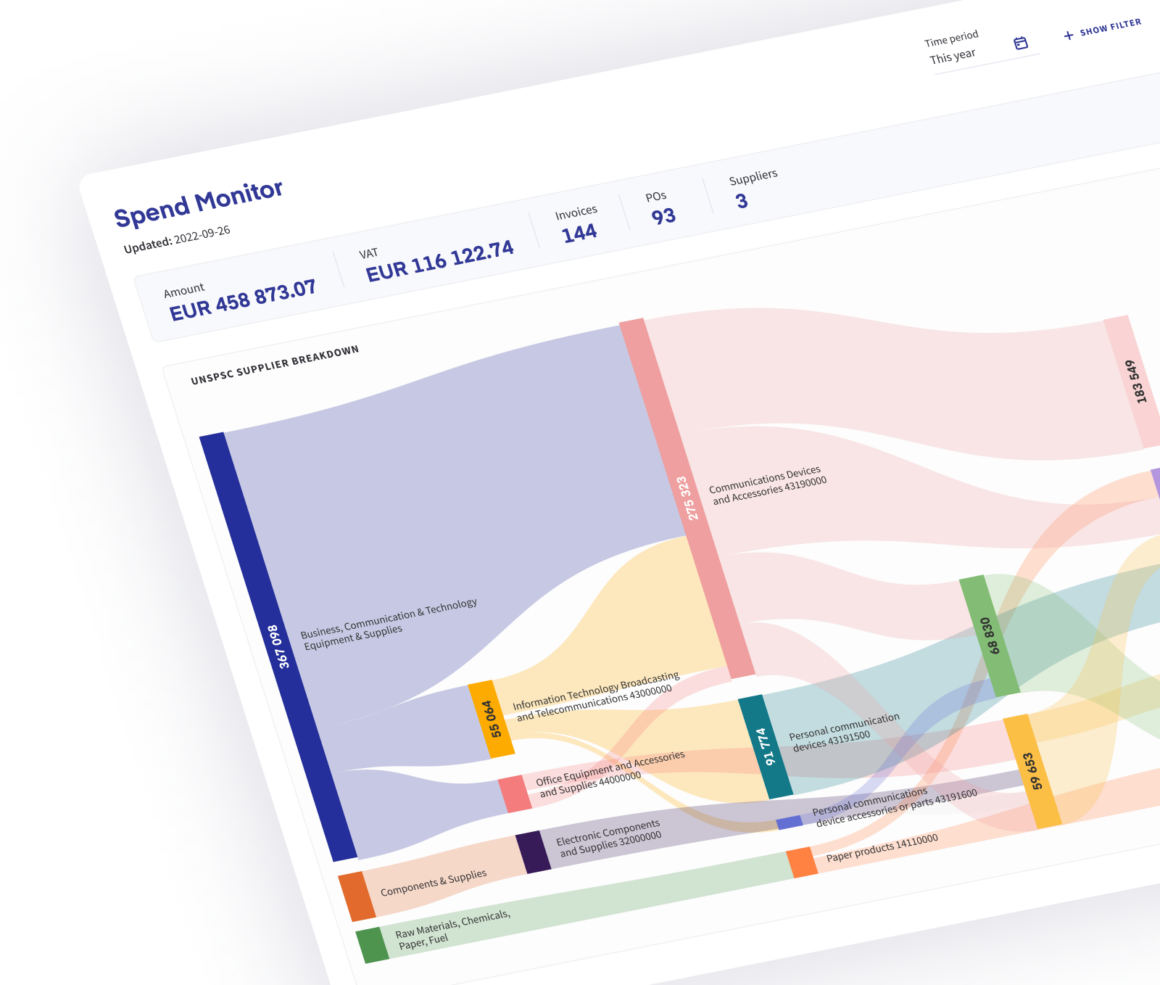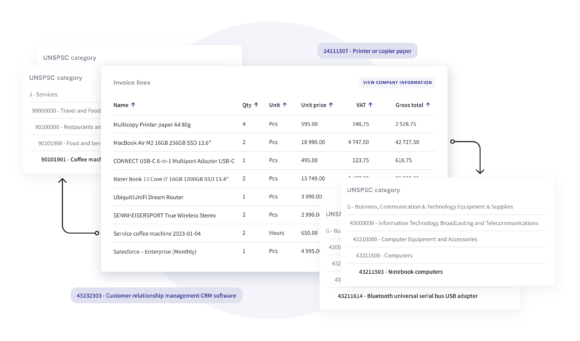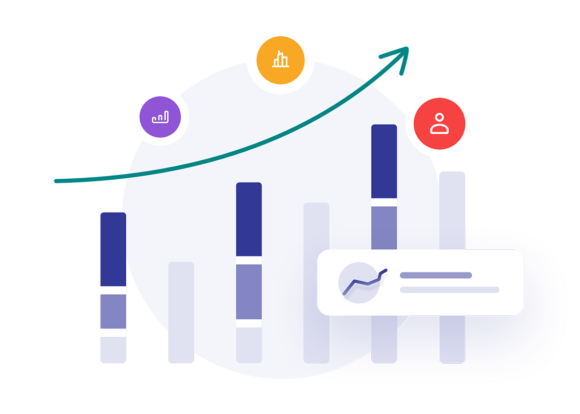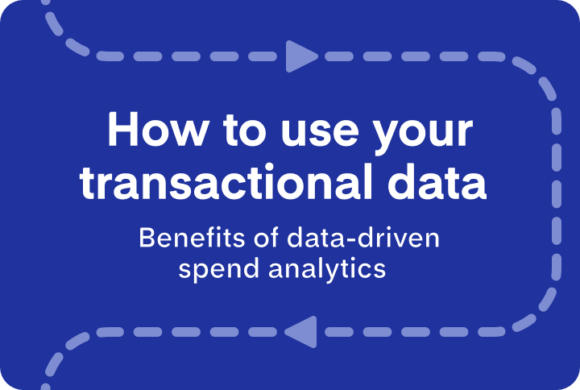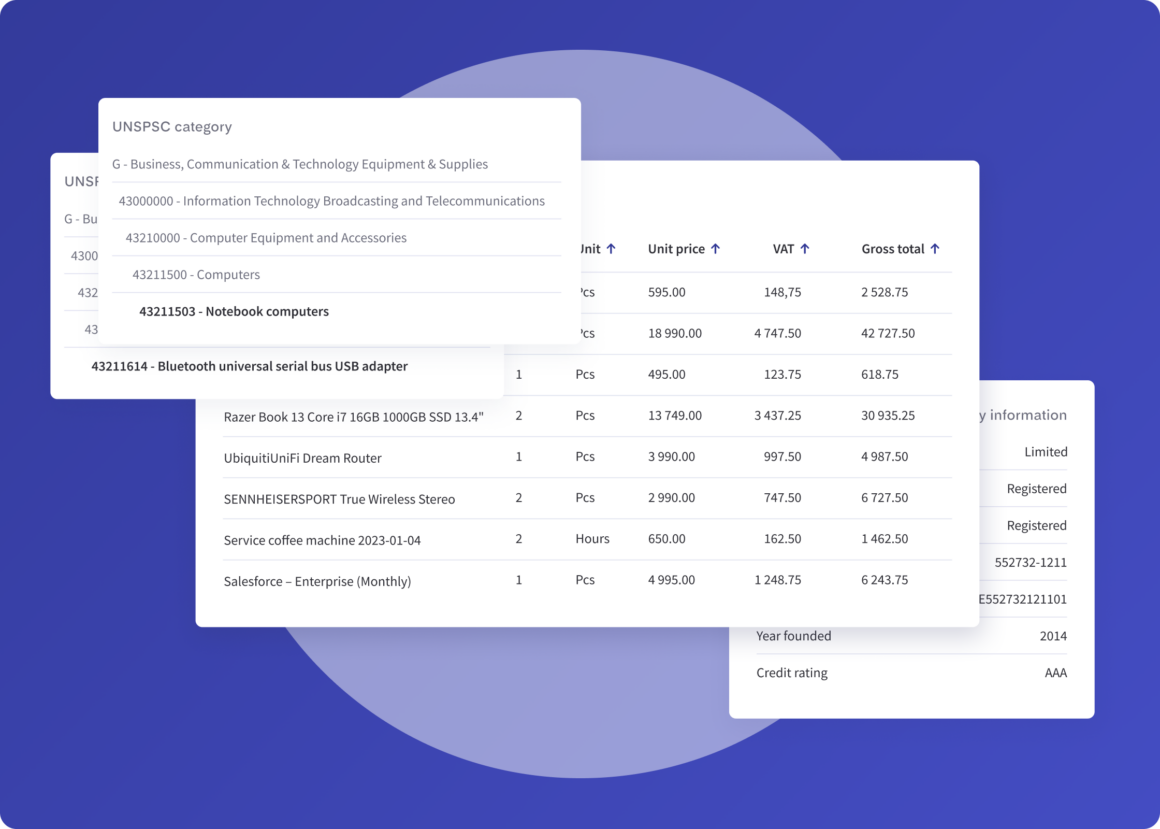
In today’s data-driven world, businesses constantly seek innovative ways to extract value from their vast amounts of information. One valuable asset that often goes untapped is structured business data. When properly organized and classified, this data can provide valuable insights and unlock numerous opportunities for growth and optimization.
The United Nations Standard Products and Services Code (UNSPSC) is a valuable and widely used classification system for products and services. This article describes six use cases for leveraging UNSPSC classification to create value with structured business data.
Six use cases for UNSPSC classification of invoice data
Enhanced spend analysis
One of the primary benefits of UNSPSC classification is its ability to enable more accurate spend analysis. Businesses gain visibility into their procurement patterns by categorizing products and services into meaningful groups. This allows them to identify spending trends, negotiate better contracts, and optimize their sourcing strategies. With a clear understanding of their spending patterns across different UNSPSC categories, companies can identify cost-saving opportunities and drive efficiencies.
Supply chain optimization
Effective supply chain management is crucial for business success. UNSPSC classification can play a significant role in optimizing the supply chain by enabling better visibility and control. By classifying products and services based on UNSPSC codes, businesses can effortlessly track inventory, manage suppliers, and streamline logistics. This classification system provides a standardized language for all stakeholders, facilitating seamless collaboration and improving overall supply chain efficiency.
Market analysis
Understanding customer purchasing behavior is essential for businesses looking to enhance their sales strategies. UNSPSC classification allows companies to perform market basket analysis, which involves analyzing the combination of products and services frequently purchased. By identifying these patterns, businesses can personalize their marketing campaigns, cross-sell related items, and make informed customer recommendations. This targeted approach leads to increased customer satisfaction and higher conversion rates.
Compliance and risk management
Compliance with regulations and risk mitigation are critical considerations for businesses across various industries. UNSPSC classification can assist in these areas by providing a framework for managing compliance and risk. By accurately classifying products and services, companies can identify potential risks associated with specific categories and take appropriate measures to mitigate them. Additionally, this classification system helps ensure compliance with industry-specific regulations, making monitoring and reporting on potential compliance issues easier.
Data-driven decision making
Informed decision-making is the backbone of successful businesses. UNSPSC classification helps organizations make data-driven decisions by providing a structured framework for data analysis. By leveraging this classification system, companies can easily aggregate and analyze data across different products and services. This enables them to identify patterns, make accurate forecasts, and gain insights into market trends. With this knowledge, businesses can make informed decisions about product development, pricing strategies, and market expansion.
Improved supplier relationship management
Maintaining solid relationships with suppliers is crucial for ensuring a smooth and reliable supply chain. UNSPSC classification can enhance supplier relationship management by enabling better communication and collaboration. Businesses and suppliers can effectively communicate their requirements and expectations using a standardized classification system. This reduces errors and misunderstandings, streamlines procurement processes, and fosters stronger partnerships. The clarity provided by UNSPSC improves efficiency, reduces costs, and strengthens the overall supplier relationship.
Summary
Structured business data holds immense potential for businesses seeking to create value and gain a competitive edge, as demonstrated by these use cases.
The UNSPSC classification system offers a robust framework for organizing and analyzing products and services. By leveraging UNSPSC classification, businesses can enhance spend analysis, optimize the supply chain, perform market basket analysis, manage compliance and risk, make data-driven decisions, and improve supplier relationship management.
Automated UNSPSC classification solution
Get every transaction on a line-item level classified to UNSPSC instantly and automatically. Qvalia provides the fastest way for any company to take control of your transactional data and get deeper insights into sales and purchases.
Let us explain how it works and how quickly you can get started, book a meeting today.
